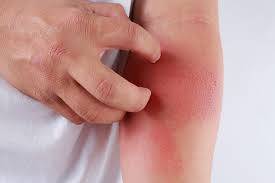Introduction:
Eczema, also known as atopic dermatitis, is a chronic skin condition characterized by dry, itchy, and inflamed patches on the skin. While there is no definitive cure for eczema, there are various treatment strategies that can effectively manage symptoms and improve the overall condition of the skin. In this article, we will explore several non-pharmacological approaches for treating eczema.
Moisturize Regularly:
One of the most crucial steps in managing eczema is maintaining proper skin hydration. Regularly moisturizing the affected areas helps to restore the skin's natural barrier function and reduce dryness. Opt for fragrance-free, hypoallergenic moisturizers that contain ingredients like ceramides or glycerin, which help retain moisture.
Avoid Triggers:
Identifying and avoiding triggers that exacerbate eczema symptoms is essential. Common triggers include irritants like harsh soaps, detergents, and certain fabrics. Additionally, extreme temperatures, allergens, stress, and certain foods can also trigger flare-ups. Keep a diary to monitor flare-ups and identify potential triggers.
Gentle Cleansing:
When washing affected areas, use mild, fragrance-free cleansers or emollients. Harsh soaps and hot water can strip the skin of its natural oils and worsen eczema symptoms. Gently pat the skin dry after washing and avoid rubbing vigorously, as this can further irritate the skin.
Wet Wrap Therapy:
Wet wrap therapy is an effective technique that helps to hydrate and soothe the skin. After applying a moisturizer, wet a thin layer of bandages in warm water, wring them out, and wrap them around the affected areas. This method helps to increase the absorption of moisturizers and provides relief from itching and inflammation.
Clothing and Fabrics:
Choose loose-fitting, breathable clothing made from soft fabrics like cotton or bamboo. These materials allow the skin to breathe and reduce friction, minimizing the risk of irritation. Avoid wool and synthetic fabrics, as they can aggravate eczema symptoms.
Manage Stress:
Stress can worsen eczema symptoms, so it's important to incorporate stress management techniques into your daily routine. Engage in activities like yoga, meditation, deep breathing exercises, or hobbies that help relax your mind and body. Adequate sleep is also essential for managing stress and promoting overall skin health.
Dietary Considerations:
While food allergies are not the primary cause of eczema, certain foods can trigger flare-ups in some individuals. Common culprits include dairy products, eggs, soy, wheat, and nuts. If you suspect that a specific food is aggravating your eczema, consider keeping a food diary and consult with a healthcare professional to identify potential triggers.
Supportive Skincare Products:
Apart from moisturizers, certain over-the-counter creams or ointments may help soothe eczema symptoms. Look for products containing ingredients like colloidal oatmeal, aloe vera, or chamomile, which have anti-inflammatory and calming properties. However, consult with a dermatologist before trying any new products.
Seek Professional Help:
If home remedies and non-pharmacological treatments do not provide sufficient relief, it is important to consult a dermatologist. They can prescribe topical corticosteroids, immunomodulators, or other medications to manage severe symptoms and prevent complications.
Conclusion:
While eczema can be a challenging condition to manage, implementing these non-pharmacological strategies can significantly improve symptoms and enhance the overall well-being of individuals with eczema. It's essential to tailor treatment approaches to your specific needs, and if symptoms persist or worsen, seeking medical advice is crucial. Remember, with proper care and diligence, it is possible to effectively manage eczema and enjoy a better quality of life.




No comments yet
Be the first to share your thoughts!